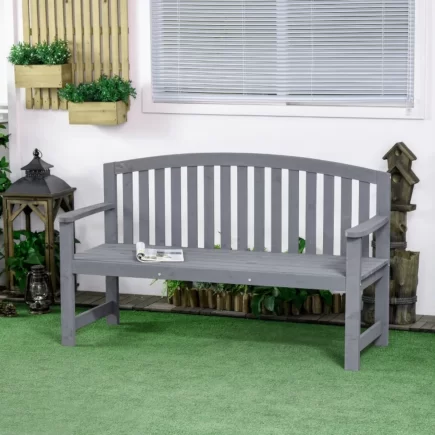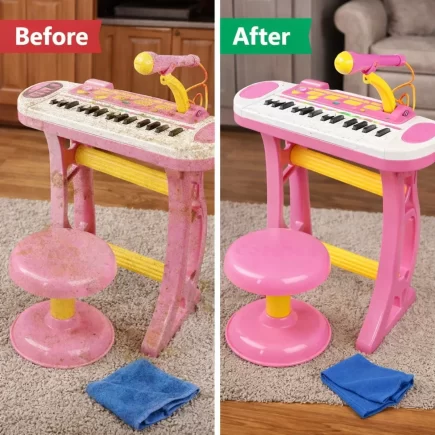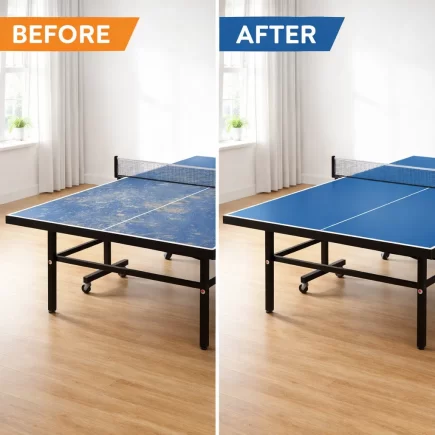Shade sails are a practical yet stylish addition to any outdoor space, offering protection from harsh UV rays while adding aesthetic appeal. However, like any outdoor accessory, they require routine cleaning and maintenance to keep them in great shape. Not only does regular upkeep enhance their visual appeal, but it also extends their lifespan, ensuring you get the most value out of your investment.

This comprehensive guide will walk you through everything you need to know about cleaning and maintaining your shade sails, broken down into actionable, easy-to-follow steps. Whether you’re a first-time owner or a seasoned shade enthusiast, you’ll find the guidance you need here!
Preparing for the Cleaning Process
Before launching into cleaning your shade sail, preparation is key. Improper cleaning can inadvertently damage the material and lessen its life span. Here’s how to prepare:
Weather Conditions and Location
Always clean your shade sail on a clear, sunny day. This ensures that the fabric dries completely after washing, minimizing the risk of mold or mildew growth.
Tools and Cleaning Supplies to Gather
Here’s a handy checklist of what you’ll need for the cleaning process:
| Tool/Supply | Purpose |
| Garden hose | For pre-rinsing and post-rinsing |
| Mild detergent | To clean the fabric without damaging UV stabilizers |
| Bucket of warm water | For mixing cleaning solutions |
| Soft-bristled brush | To remove dirt without scratching the material |
| White vinegar or baking soda | For stubborn mold or mildew spots |
| Large flat cleaning area | Place to lay the sail for thorough scrubbing |
Inspecting for Damage
Before cleaning, inspect your shade sail for:
- Rips or Tears
Patching small holes early prevents them from growing larger. - Rusty Hardware
Rust can stain the fabric and weaken attachment points.
Set aside time to address these issues post-cleaning to ensure your shade sail remains functional and safe.
DIY Shade Sail Cleaning Instructions
Cleaning your shade sail may seem challenging, but following a systematic approach can make it simple and effective.
Step 1: Take Down the Shade Sail
Begin by carefully detaching your shade sail from its mounting points. This step is crucial to ensure you can clean the sail thoroughly without missing any areas. Lay the sail flat on a clean, smooth surface, such as a patio, driveway, or concrete slab, to prevent dirt from transferring back onto the fabric.

If your shade sail is large, heavy, or mounted at a significant height, enlist the help of a friend or family member to avoid injuries or accidental tears during removal.
Safety Note
If your shade sail is heavy or mounted high, consider enlisting help to avoid injuries or accidentally tearing the fabric.
Step 2: Pre-Rinse with a Garden Hose
Using a garden hose with a low-pressure nozzle, gently rinse the shade sail to remove loose debris like dirt, leaves, and bird droppings. This initial rinse helps loosen surface grime, making the cleaning process more effective.
Avoid using high-pressure washers, as the intense force can stretch or tear the fabric, especially around seams and edges. A gentle, even spray ensures the fabric remains intact while preparing it for deeper cleaning in the next steps.
Why Avoid High Pressure?
High-pressure washers can stretch or tear the fabric, especially around seams and edges.
Step 3: Apply a Mild Cleaning Solution
Prepare a cleaning solution by mixing a few tablespoons of mild detergent, such as dish soap, with warm water in a bucket. Using a soft-bristled brush or mop, gently scrub the shade sail in sections, focusing on heavily soiled areas.

Work in the direction of the fabric’s weave to avoid fraying or damaging the fibers. Be patient and thorough, but avoid applying excessive force, as this can weaken the material and reduce its UV-blocking properties over time.
Step 4: Rinse Thoroughly
Once you’ve scrubbed the entire shade sail, rinse it thoroughly with clean water using a garden hose. Ensure all soap residue is completely removed, as leftover detergent can attract more dirt or cause discoloration when exposed to sunlight.
Pay extra attention to seams and folds where soap might accumulate. A thorough rinse not only leaves the fabric clean but also helps maintain its structural integrity and appearance for longer use.
Step 5: Air Dry
After rinsing, allow the shade sail to air dry completely under direct sunlight. Spread it out evenly on a clean surface to ensure all areas dry uniformly. Avoid folding or stacking the fabric while it’s still damp, as trapped moisture can lead to mold or mildew growth.
Proper drying is essential to prevent odors and maintain the sail’s durability. Once fully dry, the sail will be ready for reinstallation or storage, depending on your needs.
Advanced Cleaning Techniques for Tough Spots
Sometimes, everyday dirt and grime aren’t the only culprits. Mold, mildew, bird droppings, and lichen stains can be particularly stubborn. Here’s how to handle these:
Removing Mold and Mildew
Mold and mildew can quickly compromise the appearance and functionality of your shade sail if not addressed promptly. To remove these stubborn growths, prepare a cleaning solution using equal parts white vinegar and water (1:1 ratio).
Alternatively, sprinkle baking soda directly onto the affected areas. Gently scrub the spots with a soft-bristled brush, ensuring you don’t damage the fabric. Once the mold or mildew is loosened, rinse the area thoroughly with clean water to remove all residue.

Lifting Persistent Stains
Tough stains, such as bird droppings or tree sap, can be particularly challenging to remove. For these, pre-soak the stained area with a solution of mild detergent and warm water. Allow the solution to sit for about 20 minutes to loosen the stain.
Safe Drying Methods
Shade sails are susceptible to mold if not dried properly. Once cleaning is complete:
- Spread the fabric evenly under direct sunlight for drying.
- Avoid folding or stacking wet sails during the process.
Why Full Drying is Crucial
Proper drying prevents odor, mildew, and material deterioration in storage.
Common Cleaning Issues and How to Avoid Them
Learn to sidestep these pitfalls:
Risks of Machine Washing
Using a washing machine to clean your shade sail can cause significant damage to the fabric. The machine’s spinning motion can shred the edges, weaken the seams, and compromise the overall structure of the sail. Always choose gentle, manual cleaning methods to preserve the fabric’s integrity and extend its lifespan.
Mistakes During Reinstallation
Improper reinstallation can lead to long-term damage. Over-tightening the shade sail can pull threads apart, causing tears or weakening the fabric. On the other hand, insufficient tension can result in sagging, which may lead to water pooling and further strain. Always check and adjust the tension level carefully during reinstallation.
With regular cleaning and maintenance, your shade sail can remain functional and attractive for years. A well-maintained sail doesn’t just enhance your outdoor space; it also provides reliable protection against harsh sun and weather conditions. If cleaning seems daunting, or you’re in the market for high-quality shade sails, visit Aosom’s Shade Sail Collection. From robust materials to stylish designs, Aosom offers a range of options to meet every need.
FAQs
1. Can I clean my shade sail while it’s still installed?
While it’s possible to clean a shade sail while mounted, removing it allows for a more thorough cleaning and reduces the risk of missing spots or damaging the fabric.
2. What should I do if my shade sail shrinks after cleaning?
If your shade sail shrinks after cleaning, gently stretch it back to its original size during reinstallation. Avoid over-tightening to prevent further damage. If the shrinkage is significant, soak the sail in warm water to relax the fibers before stretching. For severe cases, consult the manufacturer or a professional.
3. How to get rust stains off Shade sails?
To remove rust stains from shade sails, mix lemon juice and salt into a paste, apply it to the stain, and let it sit for 10-15 minutes. Gently scrub with a soft brush, rinse thoroughly with water, and let it dry. Avoid harsh chemicals to protect the fabric.
































